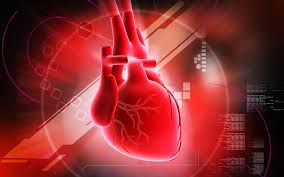heart palpitation, and when should you be worried.
In general, people are unaware of their heartbeat,
A heart palpitation is when someone has a heightened awareness of their heartbeat because it does not feel right. This may be because their heart is pounding too hard, too fast, too slow, or irregulary.
Heart palpitations can vary greatly in terms of what a person feels. Common descriptions include:
skipped or extra beat (also known as ectopic beats)
feeling like you have just exercised
beating harder
beating faster
Palpitations can also be felt in the neck, throat, or chest, or even sometimes in the ear if the person is lying down.
For most people, heart palpitations are not a regular occurrence. While they may be worrying, most cases are harmless and do not signal a serious problem.
However, some people experience many palpitations a day and often describe them as making them feel like they are having a heart attack.
Common causes
Many things can trigger heart palpitations. Some of the more common causes can be broken down into different categories.
_Emotional factors can cause heart palpitations. These include:
anxiety
stress
panic
nervousness
_Certain medications can cause heart palpitations. These include:
asthma inhalers
thyroid hormone replacement medications
antiarrhythmic medications
antibiotics
antidepressants
some cough and cold medicines
some herbal or nutritional supplements
_ medical conditions may be the cause of heart palpitations. These include:
overactive thyroid
anemia
low blood sugar
low potassium
dehydration
high temperature and fever
loss of blood
shock
low oxygen or carbon dioxide levels in the blood
_Hormonal changes are another possible cause of heart palpitations. Changes in hormone levels may result from:
menstrual periods
pregnancy
menopause
_Palpitations can also be caused by heart conditions, including:
arrhythmias (abnormal heart rhythms)
coronary artery disease or a heart attack
heart valve problems
heart failure
hypertrophic cardiomyopathy (where the muscle wall of the heart becomes thick and enlarged) or other types of cardiomyopathy
_Lifestyle factors that may cause heart palpitations include:
caffeine (found in tea, coffee, and energy drinks)
alcohol
smoking tobacco
strenuous exercise
illegal drugs (such as cannabis, cocaine, heroin, ecstasy, and amphetamines)
rich or spicy food
Complications;
While most cases of heart palpitations are harmless, if they are the sign of an underlying heart condition, then there can be serious complications.
Complications include:
Fainting due to a fast heartbeat, where blood pressure simultaneously drops to a very low level.
Stroke can damage the brain, or even lead to death.
Atrial fibrillation can lead to an ischemic stroke; can be isolated or related to another underlying heart disease.
Ventricular fibrillation (VF) occurs if VT is untreated; most common in people with pre-existing heart disease. The person could die suddenly if not given emergency treatment.
Other complications include cardiac arrest and heart failure.
Tests and diagnosis
Palpitations that are harmless will often pass quickly and occur rarely. People rarely need to see a doctor when they happen, as treatment probably won't be necessary.
However, in some situations, speaking to a doctor about heart palpitations is a good idea. These include:
if the person has a history of heart problems
if the palpitations do not improve or get worse
if the associated symptoms are severe
if the person has any other health concerns
Of course, palpitations often come and go and will often not occur at the doctor's office. It is therefore important to record:
what they feel like
how often they happen
when they happen
Being able to answer some of the following questions may help the doctor:
During a palpitation episode, is the heart rate too fast or slow, and is the rhythm regular or irregular?
Is there light-headedness, dizziness, shortness of breath, or chest pain?
Do they occur when a person is doing the same thing?
Do the palpitations start and stop suddenly, or fade in and out?
Often the first thing the doctor will do is a physical exam. They can detect many of the causes of heart palpitations this way.
They will also ask about the person's symptoms and look at their medical history.
Another standard test for assessing palpitations is a 12-lead electrocardiogram (ECG), which measures heart rate and rhythm parameters through electrical tracing.
The doctor may also conduct blood tests, echocardiography, an exercise stress test, or an electrophysiology study, depending on the symptoms.
Treatment and prevention
lady at work holding stressball
Preventive lifestyle changes that may reduce heart palpitations include getting enough sleep and reducing stress.
Treatment for heart palpitations will depend on the symptoms and what is causing the problem.
In general, treatment falls into three categories:
Preventive
Often, simple lifestyle changes that avoid triggers can help reduce or stop non-serious palpitations. These changes include:
cutting back on caffeine
stopping tobacco use
cutting back on alcohol
eating healthful foods regularly
getting enough sleep and exercise
cutting out over-the-counter medications that can cause heart palpitations
reducing stress and anxiety (yoga, meditation, breathing exercises, and tai chi have all been found to help)